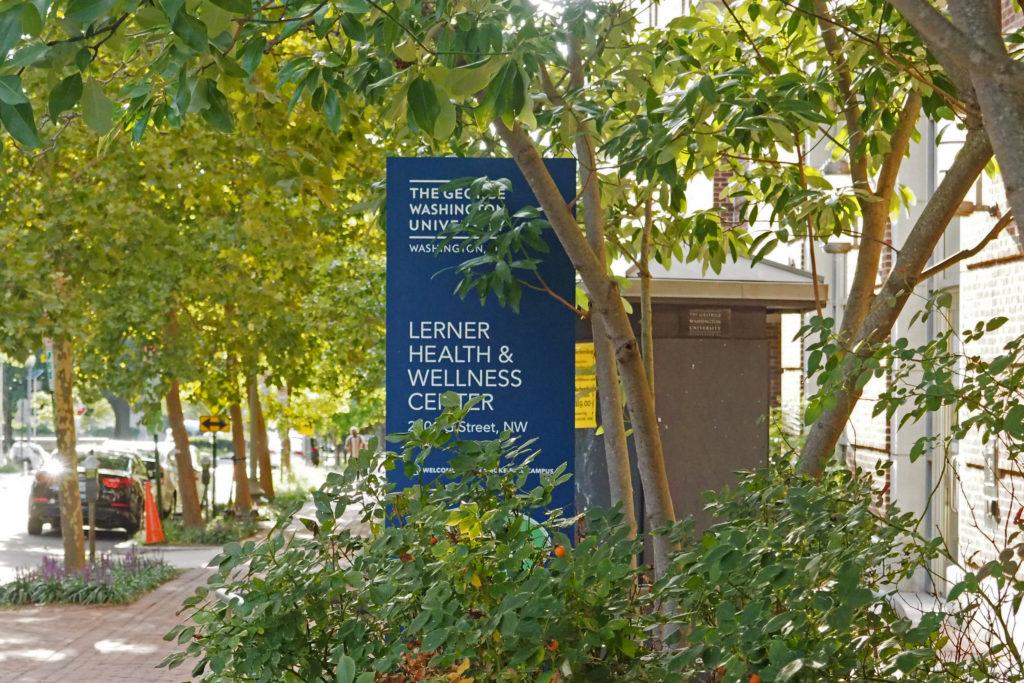Thousands of students are returning to the Lerner Health and Wellness Center after more than a year of limited reservations because of the COVID-19 pandemic.
University spokesperson Crystal Nosal said nearly 4,500 students have tapped into Lerner as of Friday for more than 15,000 visits since Aug. 23, after reservations and shorter workout sessions limited faculty operations last year while the campus population remained low during the coronavirus pandemic. She said officials are focusing on maintaining the cleanliness of the facility to soothe the concerns of people who may be hesitant to exercise indoors due to the coronavirus pandemic.
Nosal said nearly 1,000 students tap into Lerner every weekday, lower than pre-pandemic averages but significantly higher than earlier this year while reduced service restricted student access to the gym. She said more than 400 students tap into Lerner per day on the weekend, but they expect the rate of visitors to fall as exams and coursework increase students’ workloads.
“The center is busy with activity, and returning students have been eager to get back to a place they once often visited, and our students who are new to campus are figuring out what their semester routine will look like as they incorporate fitness into their schedules,” Nosal said in an email.
Nosal declined to say how many people visited Lerner daily before and during the pandemic.
She said D.C.’s coronavirus guidelines required Lerner to close from March 2020 until the fall semester that year, when officials started to allow on-campus students to schedule hourly workout blocks at the facility.
Nosal said Lerner and Housekeeping staff regularly clean and disinfect all surfaces in the gym, including fitness equipment, to maintain the building’s sanitation. She said officials provide disinfectant spray, cleaning wipes and paper towels to visitors and ask that people clean the equipment after every use.
“The cleanliness of the entire facility remains a very high priority for the Lerner team, so we continue to work closely with our Housekeeping team to do regular cleaning and disinfecting of all surfaces throughout the facility including the fitness equipment,” she said.
Nosal said Lerner workers regularly move through each floor of the building to enforce the masking policy and refer policy violations to Student Rights and Responsibilities.
She said officials are aiming to hire and train additional work-study students, who she said are necessary for the gym to fully operate, but Lerner is still several weeks away from reaching “optimal” student staffing levels.
Nosal said Lerner will continue to provide some online fitness courses, like virtual yoga and Zumba, and students can purchase a semester pass to weekly fitness courses for $79.
“While we know that many are excited to work out indoors at the gym, we do realize that some members of our community may still be hesitant about exercising indoors,” she said. “For that reason, we are providing a hybrid fitness schedule this fall with both in-person and virtual offerings, and the schedule can be found online.”
In interviews, ten students said officials are effectively enforcing the mask mandate through floor checks, but social distancing restrictions and equipment sanitation can be sometimes overlooked.
Freshman Vivian Ealy, who uses the gym three times a week, said she mostly feels safe working out at Lerner because students are required to be vaccinated and show their coronavirus clearance status before they enter the building. But she worries that some people don’t clean the weightlifting equipment after each use, which she said can cause hygienic or coronavirus issues.
“We have to wipe down the equipment after we use it,” Vivian said. “I know some people don’t do that because you have to trust people to do that, so I’m not really sure if the equipment’s totally wiped every time.”
She also said the “small” size of the weightlifting room can make it difficult to fully respect the social distancing requirements.
“The weightlifting room is pretty small,” she said. “So when it’s really crowded everyone is packed in and breathing heavily and sweating, so that’s a little unsafe.”
Senior Katherine Phillips goes to Lerner several days a week, but she said the recent spike of coronavirus cases in the past two weeks concerns her, especially when the gym can become crowded. She said she was surprised the University didn’t continue requiring reservations for gym use like last year to help control potential crowding.
The University’s daily coronavirus caseload and positivity rate reached all-time highs earlier this month, with 45 cases and a 2.91 percent positivity rate, according to GW’s COVID-19 testing dashboard.
“The gym is really small, so I think there’s going to be some risk unless they start spreading things out, but then there wouldn’t be enough equipment for everyone,” she said. “They don’t really have a good option there, everything is really close together.”
Junior Taylor Barr said he feels safe working out in Lerner because staff enforces the mask mandate more strictly than in most classrooms as they patrol each floor and immediately tell students to wear their masks when someone takes it off.
“It’s probably better than a classroom honestly,” Barr said. “Because in some classes people have their mask below their nose, but there they have signs to specifically put your mask above your nose.”








